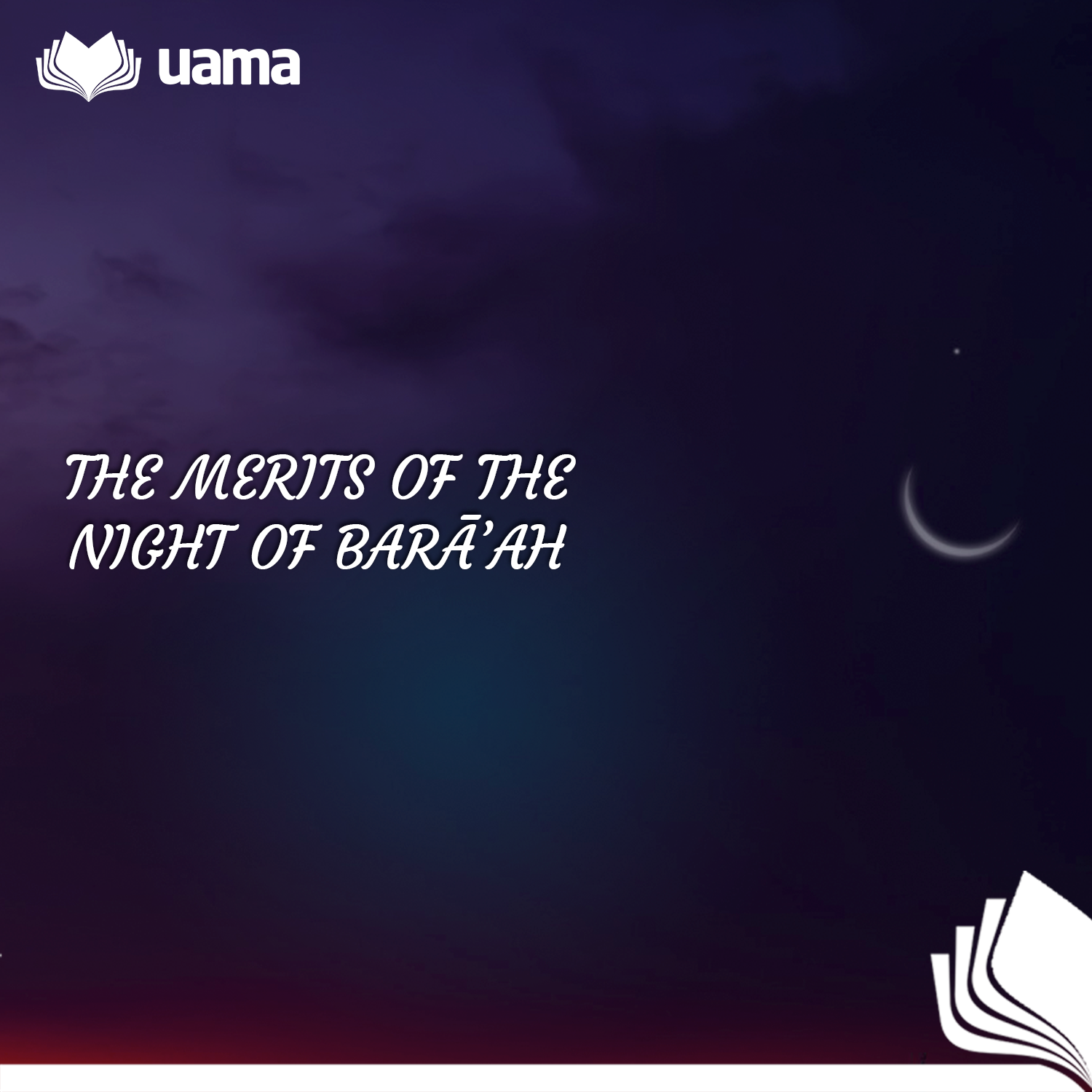Rasūlullāh (sallāllahu ‘alayhi wa sallam) said:
When it is the half of Sha‘bān, stand in ibādah (prayers) in its night and fast its day.
Whoever prays 100 rak’ah salāh on this night (of Barā’ah), Allāh Ta‘ālā will send them 100 angels. Out of these angels, 30 will give glad tidings with Jannah, 30 will tell them they are safe from the fire of hell, and 30 will repel worldly calamities from them. 10 angels will protect them from the traps of the devil.
Whoever spends five nights in ibādah (prayer), Jannah will be due for them: The night of Tarwiyah (the night before Arafah), the night of Arafah, the night of Eid al-Adhā, the night of Eid al-Fitr, and the middle night of Sha‘bān.” Some of the characteristics of the Night of Barā’ah:
Every deed of ordainment – people’s rizq (sustenance), their deaths and the like – are decreed and written on this night.
To pray on this night is meritorious.
Mercy descends on this night. Nabī (sallāllahu ‘alayhi wa sallam) once said:
“On the middle night of Sha‘bān, the mercy of Allāh descends to the lower heaven…”
Believers are forgiven, and their sins are erased.
Rasūlullāh (sallāllahu ‘alayhi wa sallam) was given the full authority of Shafā‘ah (intercession) on this night. On the 13th night of Sha‘bān, Rasūlullāh (sallāllahu ‘alayhi wa sallam) asked consent from Allāh Subḥānahū to intercede for his ummah. Allāh Ta‘ālā allowed him to intercede for one-third of his ummah. On the 14th night, Nabī (sallāllahu ‘alayhi wa sallam) asked Allāh Ta‘ālā to intercede for the rest of his ummah. Allāh Ta‘ālā then allowed him for two-thirds of his ummah. On the 15th night, he asked to intercede for the remaining. Allāh Ta‘ālā granted him the consent to intercede for his entire ummah, except those who flee from their Rabb, as a camel does from its owner. This night, it is of Allāh’s tradition to increase the Zamzam water, which indicates that divine knowledge also increases in the hearts of true believers.

